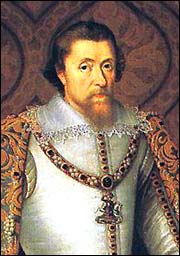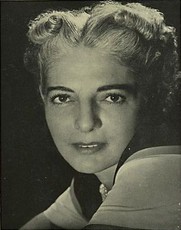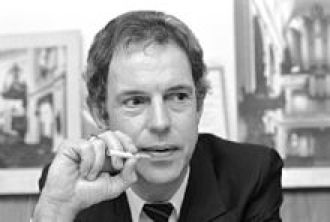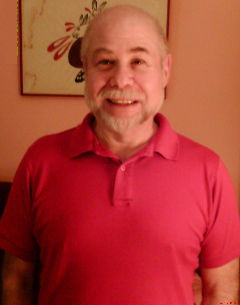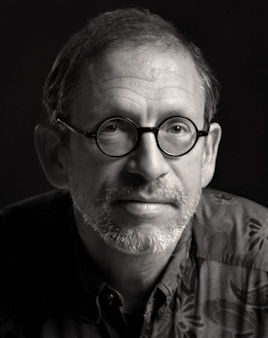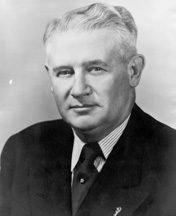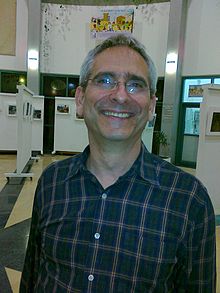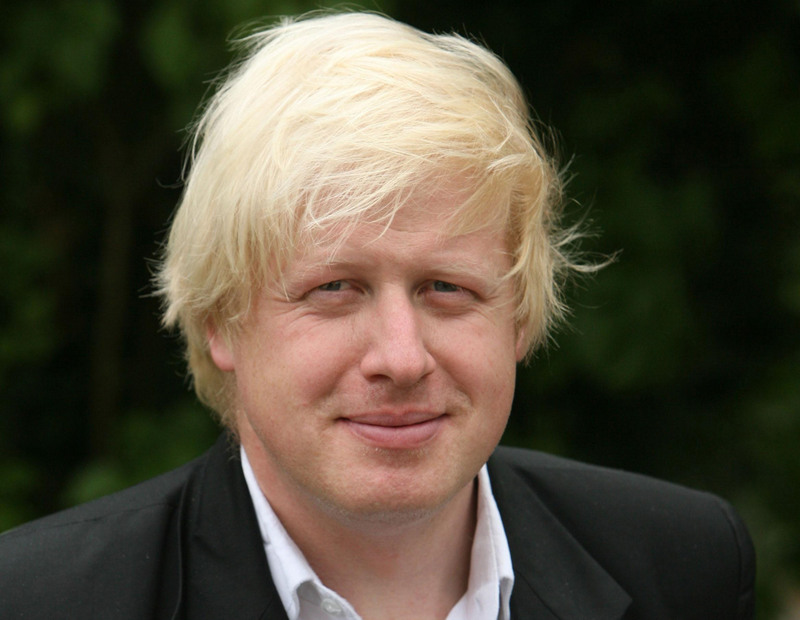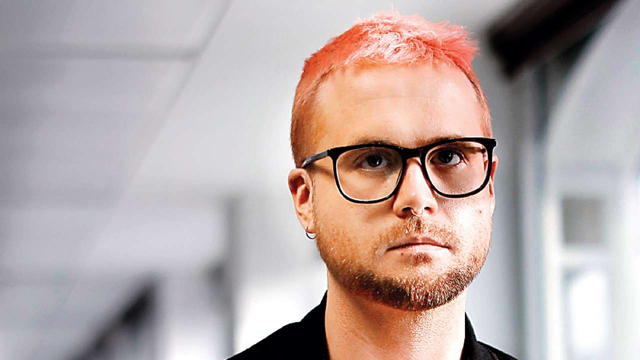|
presents THIS DAY IN GAY HISTORY based on: The White Crane Institute's 'Gay Wisdom', Gay Birthdays, Gay For Today, Famous GLBT, glbt-Gay Encylopedia, Today in Gay History, Wikipedia, and more …
Collected by Ted June 19 [{(o)}]|[{(o)}]|[{(o)}]|[{(o)}]| [{(o)}]|[{(o)}]
1312 – Piers Gaveston, French favorite of Edward II of England, was murdered on this date (b.1284). The favorite, and probably the lover, of King Edward II of England, Piers was the son of Sir Arnaud de Gabaston, a soldier in service to King Edward I of England. Arnaud had been used as a hostage by Edward twice; on the second occasion, Arnaud escaped captivity, and fled to England with his son. Both then entered the royal household, where Gaveston behaved so well and so virtuously that the King declared him an example for his own son, Prince Edward, to follow, making him a companion of Prince Edward in 1300. Prince Edward was delighted with Gaveston -- a man skilled in the arts of war and military tactics -- who was noted for his wit, rudeness, and entertaining manner, and gave him many honours and gifts. The Prince also declared that he loved Gaveston 'like a brother.' Gaveston was also a close friend of Roger Mortimer of Wigmore, Gaveston being awarded the wardship of Mortimer's property after the death of Roger's father — this was a great honor for Gaveston, since the wardship of such an estate would normally be awarded to a nobleman, and is thus an indication of the regard both the King and his son held for Gaveston. The prince's partiality for Gaveston was so extravagant that Edward I sent the favourite into exile, but he was recalled a few months later, after the king's death led to the prince's accession as Edward II. Edward bestowed the earldom of Cornwall on Gaveston, and arranged for him to marry his niece Margaret de Clare, sister of the powerful Earl of Gloucester. Gaveston's exclusive access to the king provoked several members of the nobility, and in 1308 the king was forced to send him into exile again. During this absence he served as the king's Lieutenant of Ireland. Edward managed to negotiate a deal with the opposition, however, and Gaveston returned the next year. Upon his return his behaviour became even more offensive, and by the Ordinances of 1311 it was decided that Gaveston should be exiled for a third time, to suffer outlawry if he returned. When Gaveston returned in 1312, he was faced with hostility. Thomas Plantagenet, 2nd Earl of Lancaster raised an army against Gaveston and the King, and on 4 May attacked Newcastle, where Edward and Gaveston were staying. They were forced to flee by ship to Scarborough Castle, leaving behind all of their money and soldiers, where they were appropriated by Lancaster. Edward then went south to raise an army, leaving Gaveston in Scarborough. Lancaster immediately brought his army up to threaten Gaveston and to cut him off from the King. Fearful for his life, Gaveston was forced to surrender to Aymer de Valence, 2nd Earl of Pembroke, who swore an oath to surrender his lands and titles to protect Gaveston. However, in Oxfordshire, Gaveston was captured and taken to Warwick Castle by Guy de Beauchamp, 10th Earl of Warwick. He was held there for nine days before the Earl of Lancaster arrived; Lancaster then judged, "While he lives, there will be no safe place in the realm of England." Accordingly, on 19 June, Gaveston was taken to Blacklow Hill and killed by two Welshmen, who ran him through with a sword before beheading him as he lay dying on the grass. It was alleged by medieval chroniclers that Edward II and Piers Gaveston were lovers, a rumour that was reinforced by later fictional portrayals, such as Christopher Marlowe's play Edward II. Some historians have pointed out that concern over the two men's sexuality was not at the core of the nobility's grievances, which rather centred on Gaveston's exclusive access to royal patronage.
1566 – King James I of England (aka James VI of Scotland) was born on this date (d.1625). Responsible for the version of The Bible that bears his name, James was the son of Henry Stuart, Lord Darnley, 1st Duke of Albany, who rumors said was a homosexual and who was murdered, together with the page he was supposedly buggering in the orchard, at twenty-two. James' mother was Mary, Queen of Scots. Throughout his life James, too, had close relationships with male courtiers, which has caused debate among historians about their nature. After his accession in England, his peaceful and scholarly attitude strikingly contrasted with the bellicose and flirtatious behavior of Elizabeth, as indicated by the contemporary epigram Rex fuit Elizabeth, nunc est regina Jacobus (Elizabeth was King, now James is Queen). Some of James's biographers conclude that Esmé Stewart (later Duke of Lennox), Robert Carr (later Earl of Somerset), and George Villiers (later Duke of Buckingham) were his lovers. Restoration of Apethorpe Hall, undertaken in 2004-2008, revealed a previously unknown passage linking the bedchambers of James and Villiers. Under James, the "Golden Age" of Elizabethan literature and drama continued, with writers such as William Shakespeare, John Donne, Ben Jonson, and Sir Francis Bacon contributing to a flourishing literary culture. James himself was a talented scholar, the author of works such as Daemonologie (1597) and Basilikon Doron (1599). Sir Anthony Weldon claimed that James had been termed "the wisest fool in Christendom", an epithet associated with his character ever since.
1900 – The American novelist Laura Z. Hobson was born on this date (d. 1986). Born the daughter of Jewish socialist immigrants, she graduated from Cornell University. In 1937, she decided to adopt a baby and a few years later in 1941 she became pregnant. After 1940 she devoted herself to writing. On 27 April 1947, her most famous work, Gentleman's Agreement, reached #1 on the The New York Times best-sellers' list.  Still from "Consenting Adult" A later novel, Consenting Adult (1975), about a mother dealing with her son's homosexuality, was based on her experience with her son, Christopher. It was adapted as a made-for-TV movie in 1985.
1940 – Jack Moore was a figure in the British counter-cultural scene of the 1960s, documenting on film an era that for many passed in a psychedelic blur. Born in Oklahoma in June 1940, Mr Moore studied engineering at the state’s university before switching to the theatre department. When he graduated he headed for New York City where he worked on Broadway and off-Broadway. It was during this period, while visiting the family of a friend, that he was offered a stage manager’s job in Dublin where – it is rumoured – he also picked up work as a private detective. The exuberant American with long hair and a full beard turned up unannounced one day at the doorstep of the Edinburgh's Traverse theatre’s founder Jim Haynes asking for a job. He went on to direct several hit Traverse productions, including The Fantasticks and A Child’s Christmas in Wales but left following a row with management. Jim Haynes, who knew Mr Moore for more than 40 years, described him as "extremely complex" man. He said: "Jack could be charming, helpful, funny, gracious, and rude. Once he took you out of his address book, he never wanted to deal with you again." Moore moved to London, where he not only produced and directed plays and musicals, but launched the underground paper International Times, for which he wrote prolifically. An events organiser, sound recordist and filmmaker, he also helped to establish such London venues as UFO and the Drury Lane Arts Lab, as well as the Melkweg, or Milky Way, in Amsterdam, which remains an important cultural centre. He created a huge film archive, documenting iconic performances from the likes of John Lennon and Pink Floyd which would otherwise have been lost in a purple haze. He created the first "video cinema" by converting pre-war British TV sets into video projectors, and founded Videoheads, a collective of artists interested in using the new video technology in their work. He was also actively involved with the newspaper Suck and the Wet Dream film festival. Keeping pace with technological change, he worked with Unesco and the Sony Corporation, teaching and installing video units all over the world. From the 1980s until the 21st century, he concentrated on capturing on film artistic endeavour in all its forms. As recently as 2012 counter-culture survivors around the world joined forces when Mr Moore’s landlord threatened to evict him from his Paris apartment for which he owed thousands of euros in back rent. Openly gay, he came out at a time when homosexuality was still illegal in his home state. Moore, who succumbed to liver cancer in France on April 2, 2014, wrote his own epitaph from his hospital bed, which read: "Penniless artist dies alone in Paris. This is hardly news."
1942 – Jos Brink, born in Heiloo, North Holland, (d.2007) was a Dutch actor, radio and musical performer, producer, author, columnist, and television and radio personality. He did much to promote acceptance of homosexuality in Dutch society. He was well known as an out gay person. He started living with his artistic partner Frank Sanders (born May 15, 1946) in 1973. In a 1979 TV show Thank You, Your Majesty he kissed Queen Juliana while congratulating her on the occasion of Juliana's 70th birthday. She laughed and applauded, her family and the posh audience in The Hague followed. Brink died of colorectal cancer on August 17, 2007, following a July 2007 diagnosis.
1944 – Richard Goldstein is an American journalist and writer. He wrote for the Village Voice from June 1966 until 2004, eventually becoming executive editor. He specializes in gay and lesbian issues, music, and counterculture topics. He was raised on the Lower East Side of Manhattan and in the Parkside Houses in the Bronx. He attended Hunter College for his undergraduate degree. Goldstein graduated from Columbia University School of Journalism in 1966, and joined the Village Voice in June of that year. He published his first book 1 in 7: Drugs on Campus in 1966. Goldstein began covering covered the emerging worlds of pop and rock music in his weekly "Pop Eye" column, establishing him one of the first rock critics. He also wrote pieces for The New York Times, New York, The Nation, Harpers,VogueArtforum, The Guardian, Mademoiselle, The Saturday Evening Post, and The Los Angeles Times. Assigned by the Times to review the Beatles' Sgt. Pepper's Lonely Hearts Club Band, Goldstein wrote a negative appraisal. This unleashed a backlash from Beatles fans, many of whom were unaware of Goldstein's previous work praising the band. Goldstein has since shifted his opinion on the album. He left the Village Voice in 1969, but he returned in the early 1970s as the paper's arts editor. He eventually became the executive editor, but he continued writing weekly for Voice, on subjects ranging from sexual politics to the lives of artists. He was the paper's media critic for several years before he left the Voice in 2004. He has issued two collections of his work, Reporting the Counterculture and Goldstein's Greatest Hits. He also released a collection of rock lyrics interspersed with notes on the aesthetic qualities of these songs, The Poetry of Rock. This book has been taught in literature classes in a number of secondary schools and universities. In addition, Goldstein's work has been widely anthologized. He is currently an adjunct professor at Hunter College of the City of New York, where he teaches courses on pop-culture theory and understanding the 1960s. Goldstein, who came out in the 1970s, has been a champion of gay rights and issued early calls for attention to the AIDS epidemic. Since, he has tackled the cutting-edge topic of gay assimilation and power politics with a book on the connections between liberal society and the gay right, Homocons. He famously issued a call in The Nation for Eminem to duel with him, taking exception to the controversial rapper's homophobic lyrics. Goldstein is a GLAAD-award winner for his columns on LGBT issues.
1953 – Harlan Greene is an American writer and historian. He has published both fiction and non-fiction works. Born in 1953 in Charleston, South Carolina, Greene's parents were Holocaust survivors who moved to Charleston after World War II. He also spent several years living in Chapel Hill, North Carolina in early adulthood, with his then-partner Olin Jolley, who was starting his residency in psychiatry at the University of North Carolina. In October of that year, Jolley was diagnosed with AIDS. "Olin's experience made me read a lot more stuff into Holocaust works and appreciate my parents' experience much more," said Greene He won the Lambda Literary Award for Gay Fiction for his 1991 novel What the Dead Remember, and was nominated for the same award for his 2005 novel The German Officer's Boy, a fictionalised version of the life of gay Polish youth Herschel Grynszpan, who assassinated German diplomat Ernst vom Rath in Paris in 1938. In addition to his writing, Greene has worked as an archivist for the College of Charleston, including collecting materials relating to Jewish history in the Charleston region. Openly gay, Greene lives in Charleston with his partner Jonathan Ray.
1954 – On this date, Lester C. Hunt committed suicide. Who was Lester C. Hunt? Lester Hunt was a dentist and later a very popular two term governor from the state of Wyoming. Everything was great with Hunt and he won election to the United States Senate in 1948. He was a pretty good senator too. Historians credit him for his being a bitter enemy to the redbaiting, constitution-shredding, Wisconsin Senator Joseph R. McCarthy. His criticism of McCarthy's anti-communist tactics marked him as a prime target in the 1954 election. It was unlikely that Hunt would lose election as he was so popular in Wyoming. How popular? ... You know that cute bucking bronco on the Wyoming license plate? Well, it was Hunt who placed it there when he was governor. This guy *was* Wyoming. Untouchable. Then in July of 1953 his twenty-year-old son was arrested for soliciting prostitution from a male undercover police officer in Lafayette Square right next to the White House. Lafayette Square was a very cruisy park in Washington for most of the 20th century. Republicans learned about the senator's son and his arrest and in early 1954, Senator Styles Bridges of New Hampshire delivered a blackmail demand to Hunt: either he retire from the Senate immediately and not run for re-election or they'd go public with the story of his homosexual son's arrest. The Republicans wanted Hunt's senate seat and Wyoming had a Republican governor at the time who'd appoint a Republican to run as an incumbent. After some vacillation, Hunt announced on June 8, 1954, that he would not seek reelection. Eleven days later, Hunt shot himself in his Senate office, becoming the first congressman to commit suicide in the a Senate office building. Although The New York Times attributed Hunt's suicide to "apparent despondency over his health", journalist Drew Pearson published a column stating that Senators Styles Bridges and Herman Welker had delivered the ultimatum to Hunt. If this story sounds somewhat familiar it's probably because of the film version of a novel by Allen Drury. Drury was a congressional reporter at the time, and remembered the story when he later wrote his Pulitzer Prize-winning novel, Advise and Consent. In the novel, the senator is the homosexual who commits suicide rather than reveal a past "indiscretion." In 1962 director Otto Preminger made the novel into a movie starring Henry Fonda, Charles Laughton, Peter Lawford and Don Murray as the senator who commits suicide. Most who saw the movie had no idea there was an actual story behind it all, the story of Lester C. Hunt and his son, whose homosexuality was so radioactive it could end not only his father's career but his life.
1956 – Steven Greenberg is an American rabbi with a rabbinic ordination from the Orthodox rabbinical seminary of Yeshiva University (RIETS). He is generally described as the first openly gay Orthodox Jewish rabbi, since he publicly disclosed he was gay in an article in the Israeli newspaper Maariv in 1999 and participated in a 2001 documentary film about homosexual men and women raised in the Orthodox Jewish world. Some Orthodox Jews, including many rabbis, dispute his being an Orthodox rabbi. Greenberg, the son of Conservative Jewish parents, was raised in Columbus, Ohio. When he was about 15, he began studying with an Orthodox rabbi. He attended Yeshiva University in New York as an undergraduate and then as a rabbinical student. When he was 20, he went to study at the Yeshivat Har Etzion, a hesder yeshiva in Gush Etzion near Jerusalem. He received his BA in philosophy from Yeshiva University, and his rabbinic ordination from the rabbinical seminary of Yeshiva University (RIETS) in 1983. While at Yeshivat Har Etzion, he was attracted to a fellow student and concluded that he was bisexual. He went to consult with rabbi Yosef Sholom Eliashiv, a respected old rabbi in Jerusalem, telling him: "Master, I am attracted to both men and women. What shall I do?" And the rabbi replied according to Greenberg: "My dear one, my friend, then you have twice the power of love. Use it carefully." Greenberg remembers that he left with the trust that it would all work out. However, he realised that the rabbi wasn't permitting him to have sex with men, but was telling him that his desire was not ugly in and of itself Greenberg did not acknowledge he was gay until he was 28, and even afterwards continued to date women for another seven years. In 1993 he wrote the article "Gayness and God", admitting he was gay, and published it under the pseudonym "Yaakov Levado" (meaning Jacob alone) in Tikkun magazine, but only came out six years later in an article titled "In the name of partnership" published in the Israeli daily newspaper Maariv on March 5, 1999. Greenberg participated in the critically acclaimed 2001 documentary film Trembling Before G-d, featured at the Sundance Festival. The film about gay men and women raised in the Orthodox Jewish world helped break the silence around homosexuality in religious Jewish circles, and ignited protests among ultra-Orthodox Jews. On November 10, 2011, Greenberg officiated at what is believed to be the first same-sex marriage in the United States performed by an ordained Orthodox rabbi, marrying two Jewish men in a legal marriage according to the laws of the District of Columbia at the Sixth & I Historic Synagogue in Washington, D.C Greenberg currently lives in Cincinnati with his partner Steven Goldstein and their infant daughter, born on November 11, 2010.
In recent years Johnson has played down his previous support for the anti-gay law known as Section 28, and has expressed more moderate views on the issue. Once, Johnson has actually shown apparent acceptance of homosexual rights: three weeks before the London mayoral election, 2012, he prevented the London buses from advertising a Christian campaign which aimed to preach that homosexuality could be "cured." The campaign was to advertise the phrase, "Not gay! Ex-gay, post-gay and proud. Get over it!" Johnson told the Guardian newspaper that he regarded London as "one of the most tolerant cities in the world and intolerant of intolerance." He said, "It is clearly offensive to suggest that being gay is an illness that someone recovers from and I am not prepared to have that suggestion driven around London on our buses." Johnson had dual citizenship in both the United Kingdom and the United States, since he was born in New York City to English parents. In 2014, Johnson acknowledged he was disputing a demand for capital gains tax from the US tax authorities, which ultimately he paid. In February 2015, he announced his intention to give up US citizenship to prove his loyalty to the UK. In 2016, he renounced his US citizenship. Johnson attracted a variety of irreverent names, including "BoJo" (a portmanteau of his forename and surname). His similarity to Donald Trump in both appearence and attitude has been publicly noted also.
1975 – The American Medical Association passes a resolution urging all states to repeal laws criminalizing homosexual acts between consenting adults.
1983 – In Lynchburg, Virginia, hate-monger Jerry Falwell told his followers that AIDS is a punishment from God, and that no medication could halt the judgment of God. Episcopal Bishop Paul Moore of New York criticized Falwell for using an epidemic as a political weapon.
Wylie was born to parents Kevin Wylie and Joan Carruthers, a physician and a psychiatrist. He was raised in Victoria, British Columbia. As a child he was diagnosed with dyslexia and ADHD. After being abused at the age of 6 by "a mentally unstable person", he successfully sued the British Columbia Ministry of Education after a six-year legal battle, winning a settlement of $290,000 at the age of 14. He left school in 2005 at the age of 16 without a qualification, and when asked about his "probable destiny" on his school leaver's yearbook page, he stated "just another dissociative smear merchant peddling backroom hackery in its purest Machiavellian form". In 2018, Wylie became a whistleblower, giving The Guardian documents that described the secret workings behind Cambridge Analytica. The documents center around Cambridge Analytica's alleged unauthorized possession of personal private data from some 87 million Facebook user accounts, obtained for the purpose of creating targeted political campaigns for the 2016 US presidential elections. These campaigns were based on psychological and personality profiles mined from the Facebook data. On March 27, 2018, Wylie gave evidence to the UK's Digital Culture, Media and Sport Committee which contained further revelations about the practices at Cambridge Analytica and its associated companies. Wylie's revelations triggered government investigations on both sides of the Atlantic and pushed long-simmering privacy concerns. Wylie is self-described as Gay and vegan.
1995 – on this date the U.S. Supreme Court in the case of Hurley V. Irish-American Gay, Lesbian, and Bisexual Group Of Boston unanimously voted to allow Boston's St. Patrick's Day Parade organizers to ban Gay groups from marching in the city's annual St. Patrick's Day Parade. Hurly is considered a landmark decision regarding the right to assemble and for groups to determine what message is actually conveyed to the public. Generally, the Court ruled that private organizations, even if they were planning on and had permits for a public demonstration, were permitted to exclude groups if those groups presented a message contrary to the one the organizing group wanted to convey. More specific to the case, however, the Court found that private citizens organizing a public demonstration may not be compelled by the state to include groups who impart a message the organizers do not want to be included in their demonstration, even if such a law had been written with the intent of preventing discrimination.
1998 – Governor Tony Knowles of Alaska vetoed a bill that would have criminalized sex by anyone who was HIV positive, even if the virus was not transmitted.
1998 – A Superior Court judge in San Francisco ruled that a regulation that bars gays and lesbians from serving in the California National Guard was unconstitutional. Lt. Andrew Holmes had brought the suit.
[{(o)}]|[{(o)}]|[{(o)}]|[{(o)}]| [{(o)}]|[{(o)}] |

